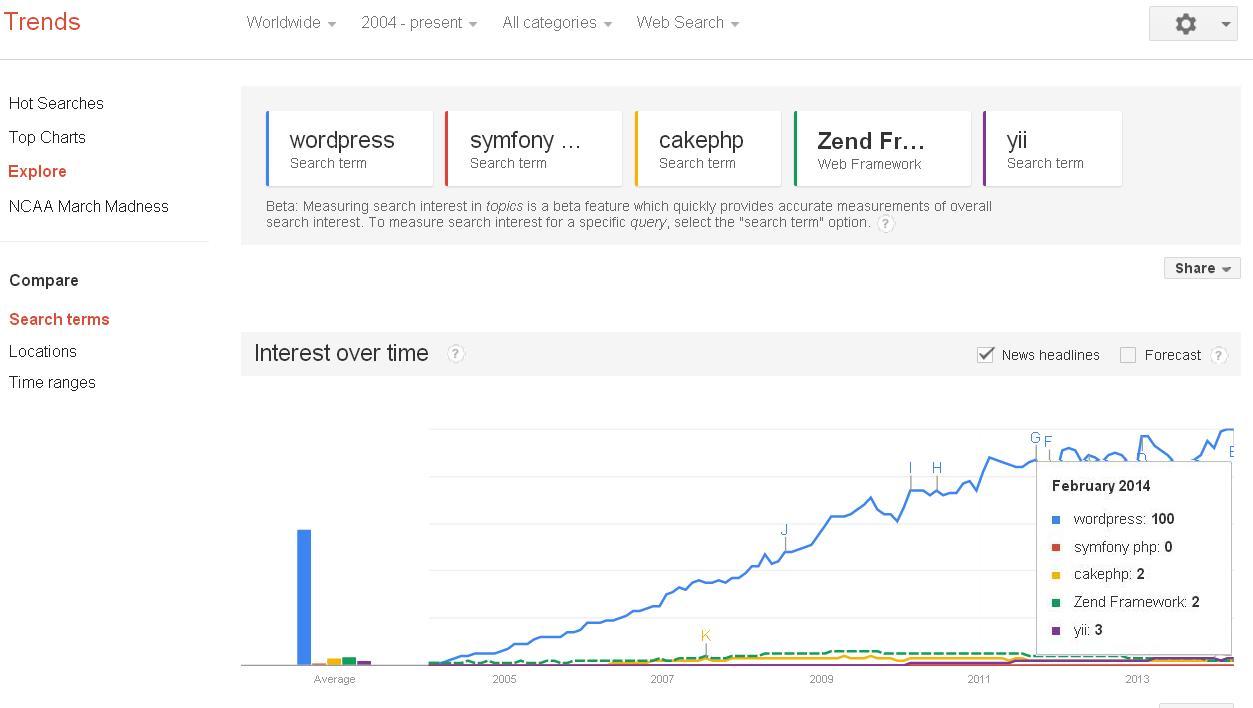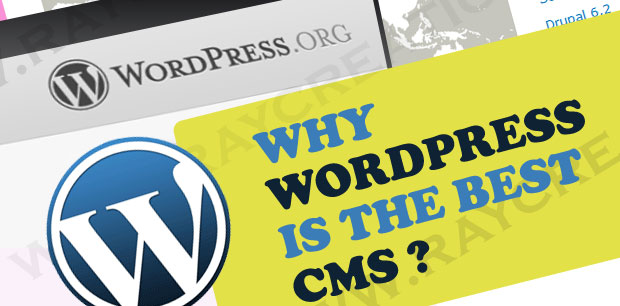There are two aspects to choosing a Content Management System for your website/blog: First, it should be simple enough for you to set up your website using the CMS, even if you are just a novice in web development; and second, it should bequeath you with enough features to let you make the necessary customizations as and when you need to.
And WordPress is one such CMS that helps you achieve both these aspects with flair. As someone taking a plunge in blogging, you probably have been told about how Word Press is the most recommended platform for blogging. And if you have already dug deeper, you know why people say what they say.
Why WordPress of All
To put it simply, WordPress has given confidence to those thinking to become bloggers go ahead and materialize their inclination into a real blog because WordPress didn’t ask to to be the jack or jenny or master of website development. Even if they never had anything to do even remotely with the practice of programming, they were able to set up their website easily and have been running it effortlessly as well.
But it’s not just the non-fussiness with which they develop the websites that has made WordPress the number one CMS out there. It is the state of the art features that keep growing in number and might that have been the driving force behind the decision of the most experienced webmasters to go with this CMS for their most ambitious websites. The designers have time and again gone with this blogging platform and recommend the website admins to pick WordPress among all the other options like Drupal, Joomla and others. WordPress has indeed taken some massive strides forward by the virtue of its highly resourceful and advanced features that enable the webmasters to tailor their website as per they deem it suitable for their brand. A WordPress website can be customized to an extent that it doesn’t look like a WordPress site by injecting some breathtaking design elements and designing a layout that is unique and catchy.
How PHP Enters the Frame
For those who haven’t realized it yet, WordPress is a PHP framework. And just like WordPress has midsized other blogging platforms, PHP has in its own way ruled the web and software development ambit. Last two decades has witnessed an influx of infinite number of programming languages and frameworks. A number of platforms have come, ruled and then made a silent exit due to the audience becoming more and more tech-savvy. These software frameworks couldn’t keep up with the fluctuating and dynamic trends of the software market, and had to make way for newer frameworks, which more or less have faced similar fate. But when it comes to PHP, it has managed to remain rock-solid as being the top most sought after programming platform. Apparently, a lot of hard work has gone into keeping it at the top and not letting monotony creep in. PHP has time and again reinvented itself and launched new frameworks frequently in the market. There is no dearth of highly utilizable PHP frameworks that stake their own serious claim of being just the very best and giving developers the wherewithal to let their skills produce the bets possible output.
WordPress is Most Sought-after PHP Application – Despite the competition
The following illustration shows you how things stand in the Google trends. The number of times WordPress is searched on Google is several times greater the number of times the PHP frameworks are searched.

WordPress vs PHP Frameworks
Now this may not exactly be THE reason you are looking for to adopt WordPress, but trends have shown that WordPress towers over its peers in PHP. What that tells you that the best combination you can have for your website in terms of the content management system and programming platform is the combination of PHP and WordPress – simply for their popularity, but it doesn’t suggest which framework of PHP takes the cake. What makes them popular is the sheer set of capabilities and features that keep getting better by the day. Other custom software companies are doing this as well.
WordPress dwarfs all the other PHP frameworks like Zend, Symfony, CakePHP and other by the sheer search volume it boasts of on Google. So, when it comes to evaluating what makes PHP so popular, these trends make it all the more apparent.
For Novices Creating their Own Websites, WordPress is the Go-to Platform
WordPress has been a motivation for folks interesting in software programming to take up PHP, and vice-versa. Those learning PHP know how they can leverage their PHP knowledge to build fully-functional websites that do not hold back on features. For those who already have a website hosted on WordPress are looking to equip themselves with even more customization capabilities. While there are a zillion plugins available, every now and then they want to inject a feature that may not be possible with a ready-made plugin and would need them create it on their own. And this is where PHP enters the fray. Being an incredibly powerful platform, PHP lets the webmasters all the freedom in the world to write codes that can help them extend their website’s functionality beyond what the default WordPress features or the plugins would have allowed them to.
Applications are What Reign Supreme
Another deduction that establishes why WordPress marches ahead than the rest is that applications have always been more poplar than the frameworks. And it is not just WordPress, even Magento emerges as an application that has went on to gain much more popularity than that platform used to create it. Zend framework is used to create Magento, but the Google Trends have also proved that among the Internet users, Magento resonates more than Zend.
When someone is developing a website, they are made to know that they will have to use PHP, which further puts a stamp on how WordPress is helping PHP resonate more and more.



